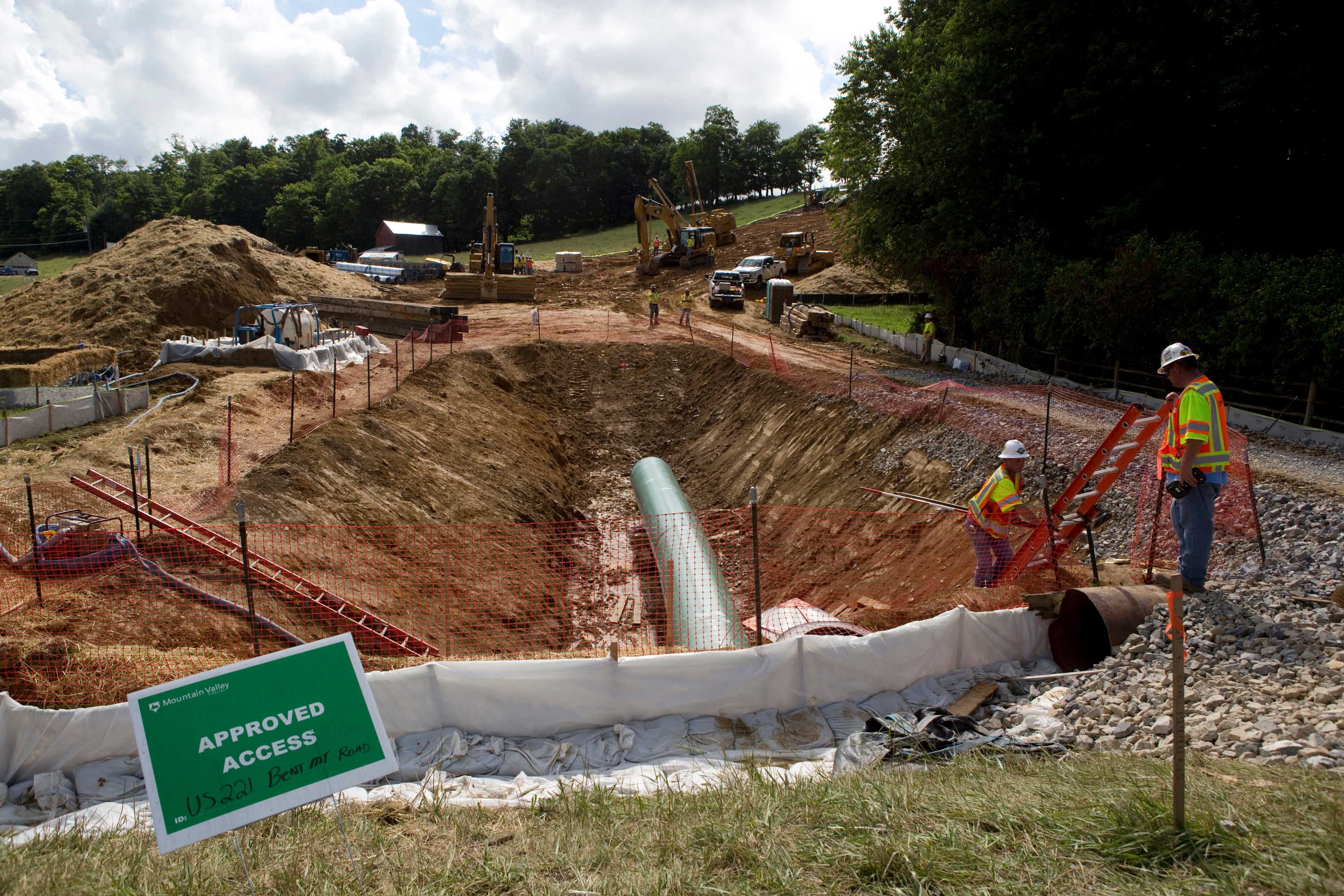US Supreme Court asked to set aside ruling that blocks construction on Mountain Valley Pipeline
The state of West Virginia is appealing a court ruling that temporarily blocked construction on a contentious natural gas pipeline

Your support helps us to tell the story
From reproductive rights to climate change to Big Tech, The Independent is on the ground when the story is developing. Whether it's investigating the financials of Elon Musk's pro-Trump PAC or producing our latest documentary, 'The A Word', which shines a light on the American women fighting for reproductive rights, we know how important it is to parse out the facts from the messaging.
At such a critical moment in US history, we need reporters on the ground. Your donation allows us to keep sending journalists to speak to both sides of the story.
The Independent is trusted by Americans across the entire political spectrum. And unlike many other quality news outlets, we choose not to lock Americans out of our reporting and analysis with paywalls. We believe quality journalism should be available to everyone, paid for by those who can afford it.
Your support makes all the difference.The fate of a controversial natural gas pipeline in West Virginia may rest with the U.S. Supreme Court, as the state appealed a lower court's ruling that temporarily blocked construction despite a Congressional order clearing the way for the project.
West Virginia Attorney General Patrick Morrisey argued that the 4th Circuit Court of Appeals in Richmond, Virginia, lacked jurisdiction to block the Mountain Valley Pipeline. In a statement Monday, he said any challenges to Congress' action must be heard by a federal appeals court in Washington, D.C.
Morrisey asked the U.S. Supreme Court to take up the case.
“The Mountain Valley Pipeline is vital to the survival of American energy independence and affects thousands of jobs in West Virginia — its completion is also critical to our national security, the urgent need is for it to be completed as soon as possible,” Morrisey said.
Congress passed legislation last month ordering all necessary permits be issued for the pipeline, which crosses rugged mountainsides in Virginia and West Virginia. Environmentalists say the construction plan will cause erosion that will ruin soil and water quality.
The legislation addressing the pipeline was part of a bipartisan bill to raise the debt ceiling. It stripped the 4th Circuit Court from jurisdiction over the case. Environmentalists have argued that Congress overstepped its authority by enacting the law, saying it violates the separation of powers outlined in the Constitution.
The appeals court issued a stay July 10 focusing on a 3-mile (5-kilometer) pipeline section that cuts through the Jefferson National Forest. On July 11, the court issued a similar stay in connection with parallel litigation alleging the pipeline would violate the Endangered Species Act. Environmentalists made similar constitutional arguments in that case.
The pipeline's operators say the project is already substantially complete and that only 3 acres (one hectare) of trees need to be cleared, compared to more than 4,400 acres (1,700 hectares) that have been already cleared.
The $6.6 billion, 300-mile (500-kilometer) pipeline is designed to meet growing energy demands in the South and Mid-Atlantic by transporting gas from the Marcellus and Utica fields in Pennsylvania and Ohio.